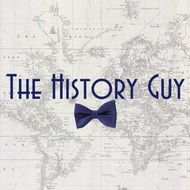
The History Guy Guild
History deserves to be remembered.
Join The History Guy from YouTube in conversation about his videos and various topics in history. Here you can find behind-the-scenes peeks of the set and The History Cats. Share ideas for future videos or ask questions of both the community and The History Guy himself. Early releases and the occasional extras are available for supporting members.
Join The History Guy from YouTube in conversation about his videos and various topics in history. Here you can find behind-the-scenes peeks of the set and The History Cats. Share ideas for future videos or ask questions of both the community and The History Guy himself. Early releases and the occasional extras are available for supporting members.
Interested? Want to learn more about the community?
Pawning the Northern Isles: Orkney and Shetland
Perhaps the most astounding, if not largest in monetary value, thing to be pawned in history was the northernmost constituency of Great Britain, consisting of around 177 islands and nearly 1000 square miles of land.
Interested? Want to learn more about the community?
What else you may like…
Videos
Posts
Many Firsts: USS Langley
On February 27, 1942 a three decades old US Navy ship was attacked by Japanese aircraft and sunk. It was a difficult time for the allies, many ships were lost that day. But the sinking of USS Langley represented the end of one of the most consequential ships is the Navy's history.












